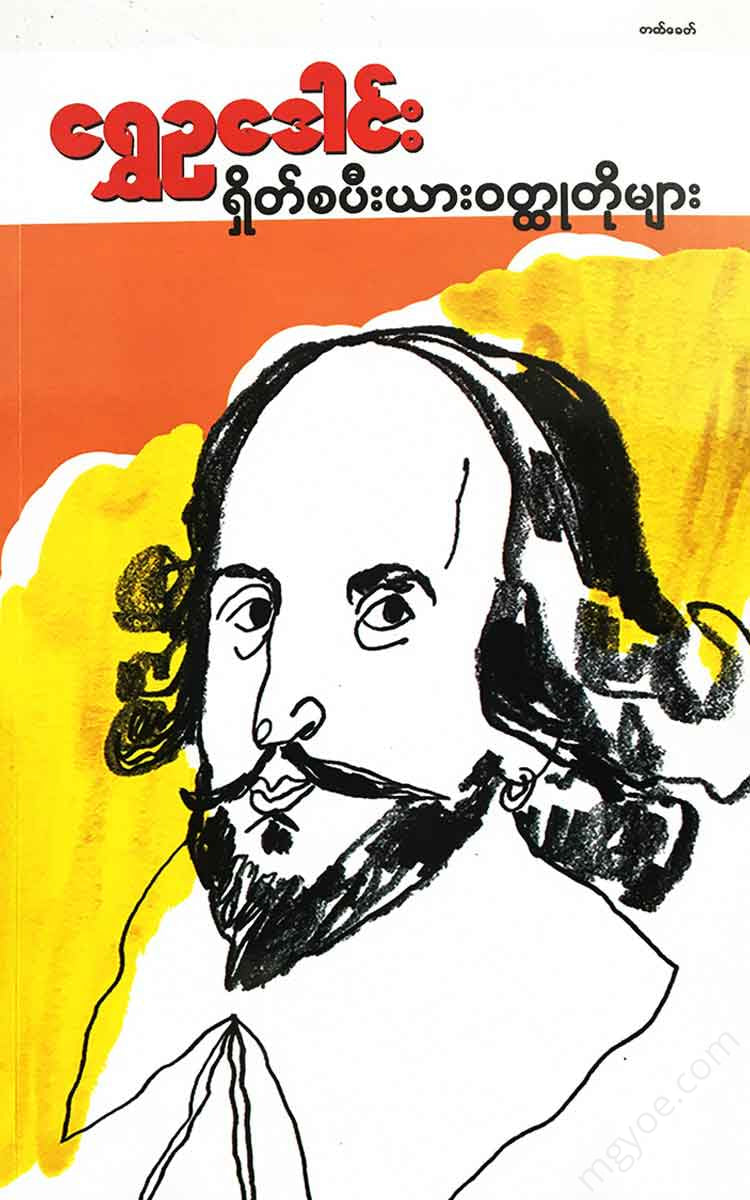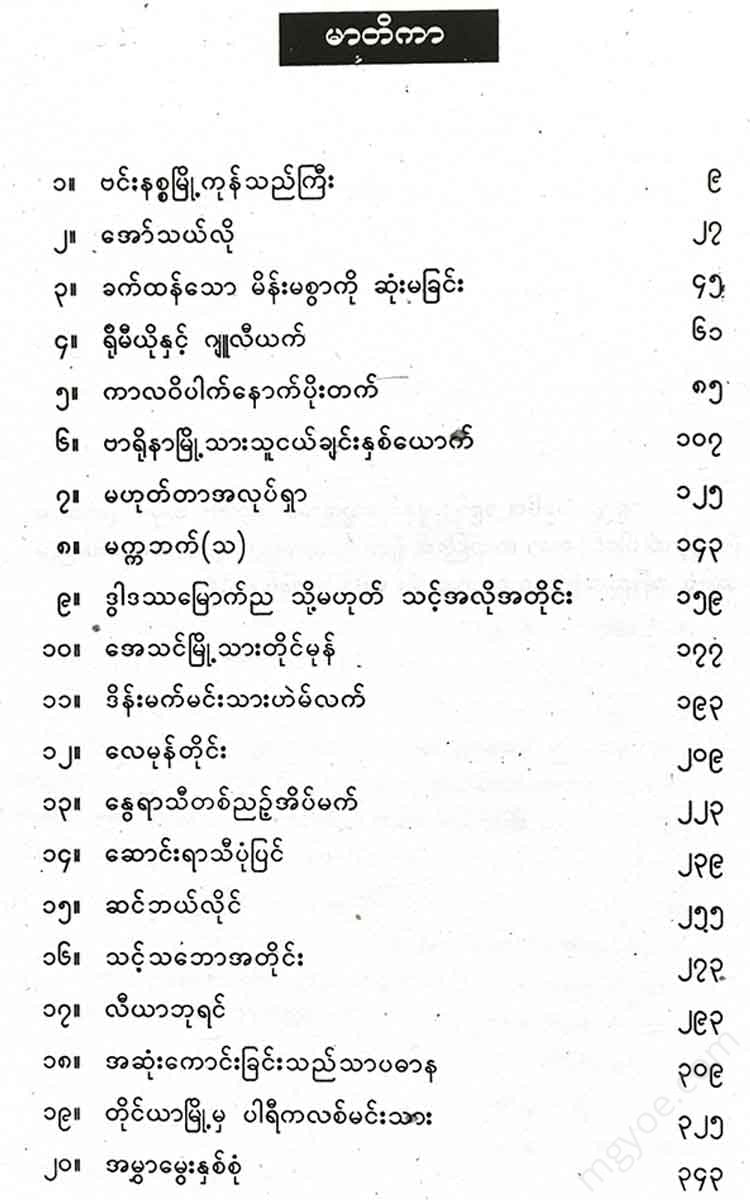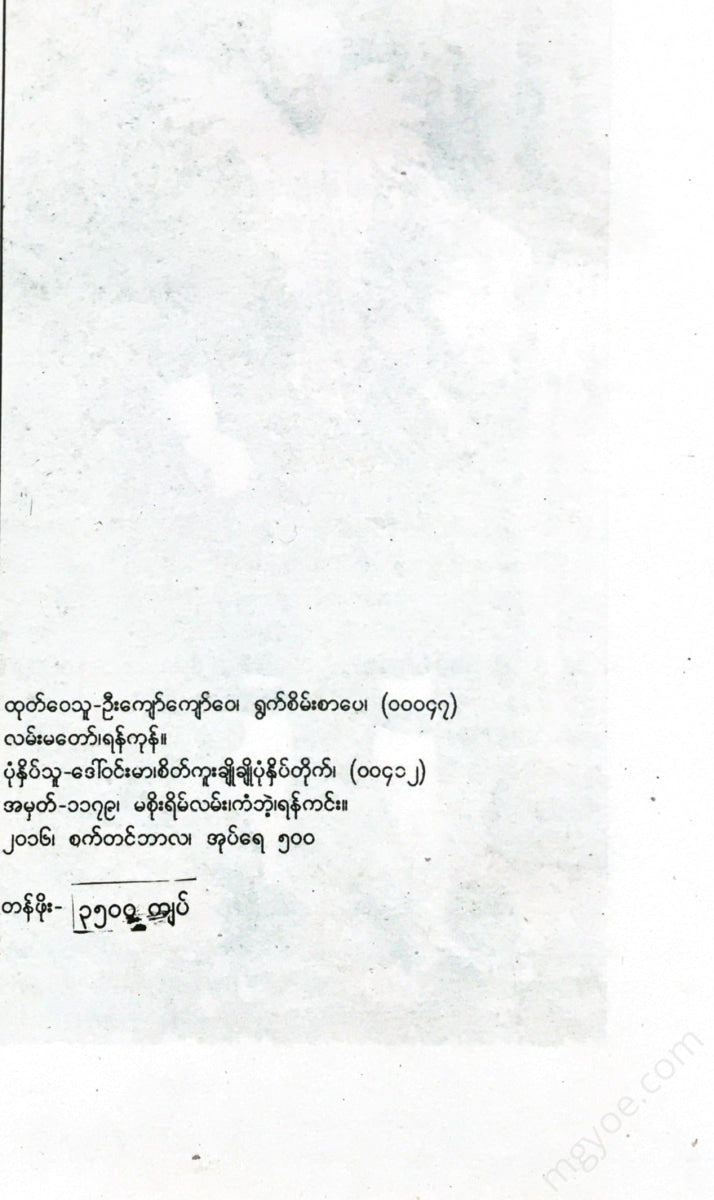စိတ်ကူးချိုချိုစာပေ
The Golden Peacock - Shakespeare's Short Stories
The Golden Peacock - Shakespeare's Short Stories
Couldn't load pickup availability
The Merchant of Venice
Shiloh, a Jewish (Rhudi) man living in Venice, became a wealthy man by lending money to Christian merchants at high interest rates. Shiloh was a ruthless man and demanded the money he borrowed back from them, which made him disliked by everyone, especially by the Venetian merchant Antonio. Antonio hated him because he lent money to the poor and needy without charging interest. Thus, the greedy Shiloh and the generous Antonio became bitter enemies. Whenever Antonio and Shiloh met in the money exchange, Antonio would mock Shiloh, calling him a greedy man with high interest rates and a ruthless man. But even though Xiang Luo was grieving and harboring resentment for this, he often displayed a tolerant demeanor.
He told him that if he could not repay the money he had borrowed from him by the due date, he would sign that he could take a pound of flesh from Antonio's body, cut from any part of it he wanted.
" I agree, Diamond. If that's the case, I'd even say that you're a very kind Jew," Antonio said.
Then Barcelone begged Antonio not to sign such a contract for him. But Antonio said that before the day of payment, his large ships worth many times more than this money would arrive, and he would sign according to his contract.
When Shiloh heard the two friends arguing, he said, "Oh... Father Abraham... I have come across two Christians of little faith. They are so hardened in their own minds that they are suspicious of others... Let me ask you, Basilio, if your friend cannot repay me on the appointed day. A pound of his flesh is of no use to me. If it were mutton or beef, it would be fine. What use is a pound of human flesh to me? I am only here to help you... Take it if you want it. If you don't, leave it."
Finally, Basilio, not convinced by Shiloh's deceit, tries to persuade Antonio not to sign, but Antonio does not listen and signs, thinking that the contract was made in jest (as Shiloh had said), and so he does.
The woman whom Barcellino loved lived in Belmont, near Venice, and her name was Portia. Her beauty and qualities were not inferior to those of Poesia, the daughter of Cato and wife of Brutus, who had made a name for herself in history.
When Barcellino had obtained the necessary money, he set out for Belmont with his friends and a disciple named Graciano. The wealthy women responded to Barcellino's love, and they soon arranged to marry.
When Barcelone told Poe that he had no wealth, but only a good lineage, he was proud of it. Poecia said that she loved Barcelone not because she expected wealth, but because she admired the qualities of a man. As for wealth, she had enough without expecting it from a husband. She wanted to be a thousand times more beautiful and ten thousand times richer than she was now, to match Barcelone's noble qualities. She was illiterate, uneducated, Although he was only a boy, he was not yet old enough to learn, so he wanted to accept the teachings of his master and entrust himself to be taught in everything. After saying this respectfully, “From today on, I hand over all my belongings, including my entire body, to you. Yesterday, I owned this great building and could not rule over my own servants and retinue. But from today, I hand over the building, the servants, the retinue, and myself, along with this ring, to you,” he said, and handed a ring to Basilio.
Basilio, who was so humbled by the gift of a woman of honor and wealth to a man of no means, was not only grateful but also astonished. He could not speak in a polite manner. He thanked her in stammering words, and, putting on the ring, promised never to part with it.
Portia is politely telling him that she accepts Basilio's love. Basilio's disciple Gratiano and







